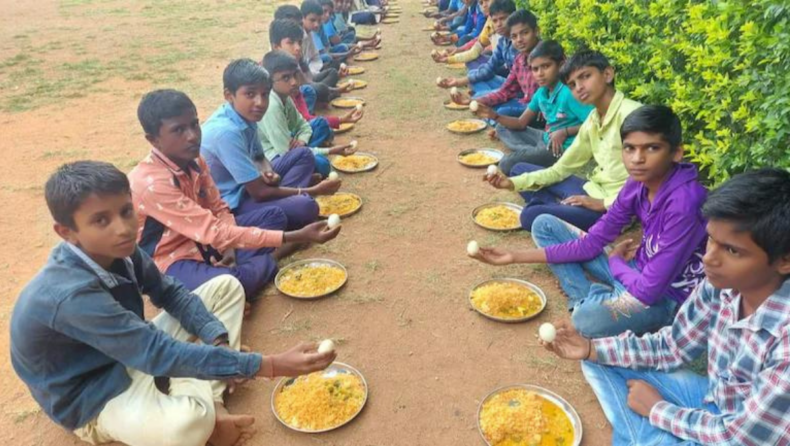
Mid-day meal schemes have always been controversial, the latest being Karnataka which has geared up its pace and is all set to provide eggs to children under the mid-day meal scheme.
Approximately 11.80 crore school children will be benefited from this scheme.
The large number of students being served makes it one of the largest initiatives in the world to enhance nutritional levels through hot cooked meals.
The scheme will cover all school-going children from class 1 to class 8 in government and government-aided schools including those which are run by municipal corporations of Delhi.
The NFHS-5(National Family Health Survey-5) had reported high malnutrition, anemia, and low immunity among the children in the state.
As per the data released by the state government, there were 3,47,051 moderately malnourished children and 7,908 severely malnourished children in the state by the end of August 2021.
The NFHS-5 also pointed out that 35 percent of children under 5 were stunted and 20 percent wasted.
In India initiatives to provide meals to school children date back to 1920 when the Madras Municipal Corporation was providing meals to children. In 1956, Tamil Nadu chief minister K Kamaraj initiated a school feeding scheme.
The mid-day meal scheme was started on August 15, 1995.
It was a centrally sponsored scheme. In September 2021, the Mid-Day Meal Scheme was renamed ‘PM Poshan Shakti Nirman’.The current version is the Pm Poshan.
It has been launched for 5 years, from 2021-22 to 2025-26, with a budget of Rs 1,30,794.90 crore.
The authorities working under this scheme need to ensure that the students are being provided a balanced healthy meal that provides 450 calories and 12 gm of protein to children in primary classes.
While the requirements are 700 calories and 20 gm protein for upper primary children.
The state can also provide supplementary nutrition. Currently, Andhra Pradesh provides egg/banana, and chikki 3 days a week.
Tamil Nadu provides eggs on all days of the week.
Bihar, Gujarat, Haryana, Jharkhand, Karnataka, Kerala, Madhya Pradesh, Maharashtra, Odisha, Punjab, Rajasthan, Telangana are serving some form of additional food to the school children.
The scheme in Karnataka will likely start from the next academic session.
Studies have shown that mid-day meals leave a long-lasting impact. Karnataka by implementing eggs in the mid-day meal will become the 13 states to provide eggs.
The inclusion of eggs in mid-day meals often has been controversial.
Chhattisgarh, which had decided that they would provide eggs to children when they found out that the meal that they were providing had a low quantity of protein faced political opposition.
Similarly, Karnataka’s proposal to include eggs is being resisted by religious leaders. The Lingayat community has opposed inclusion.
Channabasavananda Swamiji of the Lingayat Dharma Mahasabha and Sadguru Maate Satyadevi were some Lingayat seers who had requested the government to stall the program.
The mid-day meal scheme will bear the name of the late Shivakumara Swamiji.
He started the concept of a mid-day meal for poor children in institutions run by the Siddaganga mutt of Tumakuru. He provided free food to poor children for over 80 years.
Edited by Vanshika Sahu
Published by Mohd Faizan













